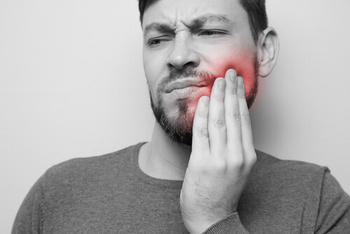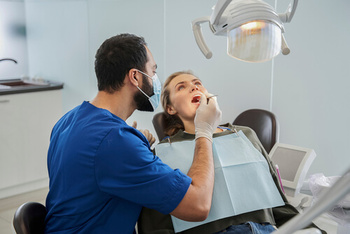Gum disease is often thought of as a personal health issue, but many people wonder, is gum disease contagious? While you can’t catch gum disease like the common cold, there are ways in which the bacteria that cause it can spread. Understanding how this works is key to protecting yourself and others.
What Exactly Is Gum Disease?
Gum disease, or periodontal disease, is a bacterial infection that affects the gums and surrounding structures. It usually starts with plaque buildup along the gum line, which leads to inflammation, irritation, and bleeding gums. If left untreated, it can progress to gum recession, bone loss, and eventually tooth loss.
There are two main stages:
- Gingivitis: the early stage marked by red, swollen gums that may bleed during brushing or flossing
- Periodontitis: the advanced stage where gum tissue pulls away from the teeth and infections can damage the bone
Is Gum Disease Contagious?
Technically, gum disease itself is not directly contagious. However, the bacteria that cause it can be transferred between people through saliva. So while you won’t instantly develop gum disease just by being around someone who has it, sharing bacteria through certain behaviors increases your chances.
 How Bacteria Spreads
How Bacteria Spreads
The bacteria responsible for gum disease can be shared through:
- Sharing utensils, cups, or drinks
- Kissing or other saliva-to-saliva contact
- Using someone else’s toothbrush
This means you can catch gum disease if these bacteria are introduced to your mouth and you’re vulnerable to infection due to poor oral hygiene or underlying health issues.
Factors That Influence Your Risk
Gum disease depends on several factors, including your oral habits, immune response, and overall health. People with poor oral hygiene, diabetes, or weakened immune systems are at higher risk. Tobacco use, hormonal changes, and certain health conditions also increase susceptibility.
Even if you’re exposed to the bacteria, your body’s ability to fight off infection and how well you take care of your mouth play a huge role in whether or not you develop gum disease.
Can You Prevent Gum Disease if You’re Exposed?
Yes, absolutely. Even if you’re exposed to the bacteria that cause gum disease, there are simple and effective ways to prevent gum disease from developing.
Practice Good Oral Hygiene
This is your first and most important defense. You should:
- Brush your teeth at least twice a day
- Floss daily to remove plaque between teeth
- Use an antibacterial mouth rinse if recommended
- Avoid using someone else’s toothbrush
Good oral hygiene helps control the bacteria and plaque buildup that can trigger the disease.
Visit Your Dentist Regularly
Regular dental checkups and professional cleanings are essential. Your dentist or dental hygienist can detect early signs of gum problems and remove plaque before it hardens. In cases where the gum line is already inflamed, early treatment options such as scaling and root planing can make a huge difference.
Avoid Sharing Saliva
To reduce the risk of spreading or catching gum disease bacteria, avoid:
- Sharing drinks or utensils
- Using someone else’s toothbrush
- Kissing someone with active gum infection, especially during advanced stages
These may seem harmless, but they’re common ways for bacteria to travel from one mouth to another.
What Happens If Gum Disease Is Left Untreated?
If gum disease goes untreated, it can lead to permanent damage. The soft tissue and bone that support your teeth can deteriorate, causing loose teeth and eventually tooth loss. In severe cases, treatment may involve gum grafting or even tooth extraction.
But the effects don’t stop at your mouth. Gum disease has been linked to a number of broader health issues, including:
- Heart disease
- Diabetes complications
- Respiratory infections
- Increased risk of stroke
- Pregnancy complications
Maintaining healthy teeth and gums is not just about your smile. It impacts your overall health and well-being.
Early Detection Makes a Big Difference
 The good news is that gum disease can often be stopped or reversed if caught early. Visiting your dentist regularly for cleanings and exams ensures that any signs of gum inflammation are treated promptly.
The good news is that gum disease can often be stopped or reversed if caught early. Visiting your dentist regularly for cleanings and exams ensures that any signs of gum inflammation are treated promptly.
If gum disease is diagnosed, your dentist may create a treatment plan that includes:
- Deep cleaning to remove plaque and tartar
- Antibacterial rinses or medications
- Guidance on improving your home care routine
The earlier the treatment, the better your chances of avoiding permanent damage.
Final Thoughts: Can Gum Disease Be Spread?
To answer the question again: is gum disease contagious? The disease itself isn’t contagious in the traditional sense, but the bacteria that cause it can spread through saliva. If you’re living with someone who has gum disease or are in close contact with others, it’s important to be cautious about sharing anything that involves saliva.
Preventing gum disease comes down to practicing good oral hygiene, getting regular dental cleanings, and being aware of how bacteria spreads. These steps help protect not just your own gum health, but also the health of those around you. To learn more about how to protect your oral health and prevent the spread of harmful bacteria, it’s best to consult a dentist in Hawkesbury.
Taking care of your teeth and gums is one of the best things you can do for your body. If you suspect early signs of gum disease, such as bleeding gums or gum recession, don’t wait. Talk to your dentist about the right treatment plan before the problem gets worse.
References
https://my.clevelandclinic.org/health/diseases/21482-gum-periodontal-disease
https://www.webmd.com/oral-health/gingivitis-periodontal-disease
https://www.healthline.com/health/dental-and-oral-health/is-gingivitis-contagious
https://www.medicinenet.com/is_gingivitis_contagious/article.htm






Comment here